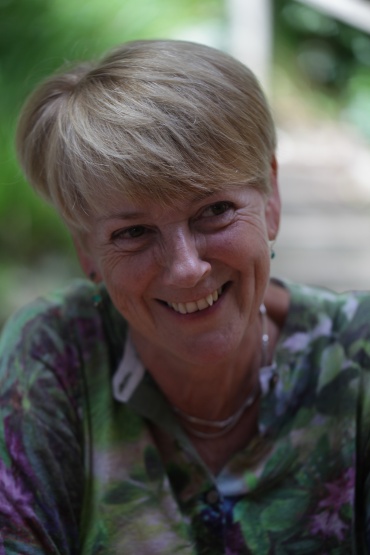Our latest news
Alison Frater, Chair of Clean Break, on how women in prison have been let down and why the arts give her hope
No. 7 in our blog series exploring creative approaches to transforming the criminal justice system.
Author: Alison Frater, Co-Chair of Clean Break
How do we halt the vicious cycle of crime?
On the face of it a question about halting the vicious cycle of crime requires an answer about prevention. We need to identify what it is about our society, individuals, families and communities that creates crimes then we’d know what to do to stop it, wouldn’t we?
Examining the question more closely and especially through the lens of women’s incarceration, an area I know best (though the issues are not unique to women), I see that the author is asking a better question. It’s not the crime in this sentence that’s vicious it’s the cycle. The questioner already knows that the causes of crime are well evidenced, properly researched, findings are validated. What they want is the answer to why it goes round and round. Who on earth is responsible for this malign scrolling recurring endlessly to the detriment of perpetrator and victim – a false dichotomy for women by the way. And what, in this past, present and never-ending future, can we do to stop it.
Observing moribund, going nowhere social policy is a bit of an occupational hazard in my chosen career of pubic health. But, the repeated failure of successive governments to deliver the widely supported policy objective of reducing women’s incarceration has few precedents. The neglect of need, the un-reason, the wasted investment on interventions with evidence to the contrary sinks to a new low of moral and fiscal incoherence. Still being sentenced to imprisonment for minor crime, first offences, debt, problems arising from drug and alcohol issues, they lose their jobs, their housing, their children. Failed again and again women are forced to relive their trauma through endless public enquiries. Children, families and communities are left to roll around in a badly led, courage missing, policy churn.
Shifting your stare from the relentless pursuit of change through political influencing takes a lot for a hardened public health consultant. I’ve had to get over my disbelief – my own vicious cycle – that surely this latest piece of research or this reshuffled administration or new Secretary of State will make the difference. For me, release, stepping out of the miserable vortex came from six years of joyous chairing of the National Criminal Justice Arts Alliance.
Arts organisations don’t like to see themselves in the role of social reformers. They argue about the intrinsic value of the arts, the complexity of emotional enrichment. They don’t deny art’s transforming power but they worry that it will be diminished if pressed to the wheel of social reform. And well they might.
But for me the reveal is that the arts explain the cause of crime but also the consequences of criminalisation. They hold a mirror to society in a way that refracts its more bewildering behaviour. What you get is a way of seeing, a visible light.
Public sector organisations are now required to deliver social impact. Increasingly they’re turning to the organisations in the NCJ Arts Alliance for inspiration. What they find are cultural leaders who deliver change because they put people’s needs at the core of their work.
I co-chair Clean Break, a theatre company that provides access to creativity for women affected by the criminal justice system. From its origins 40 years ago, the founders established and worked with sister organisations who could offer help with housing, health, employment, education, social care. Clean Break delivers, mentoring, writing and theatre workshops, dramaturgy but also friendship and community. It stands with its members tackling discrimination, racism and poverty. It sees that meeting physical and mental health needs drives out the stifling impact of inequalities, frees lives, enables unique and wonderful, inspiring expression.
When Clean Break presents productions (and don’t miss the Summer Season 2021) increasingly to new audiences in full houses or on packed screens, it finds a society that hasn’t given up on women, but one that’s giving up on leaders who continue to condemn the vulnerable to vicious cycles.
_______
Good Vibrations has worked in prisons and young offender institutions since 2003. We see the destructive effects on people of living within our overstretched, under-resourced criminal justice system. We want to understand how people can be better supported before, during and after their contact with the criminal justice system. We have commissioned a series of blogs from a range of experts, including those with lived experience and their families. Every Thursday for the next four months, we will bring a different voice with their own unique perspective and ideas. At the end of the series we will publish a report drawing together the themes and recommendations.
